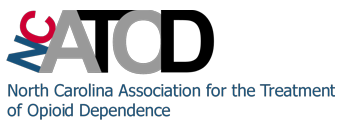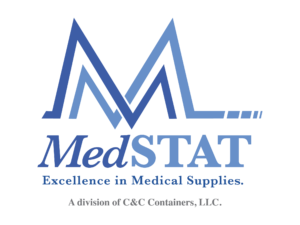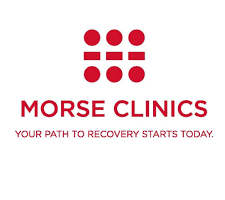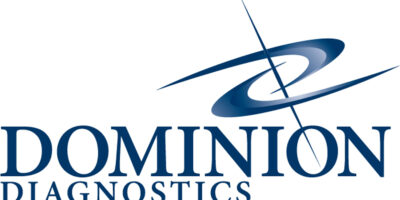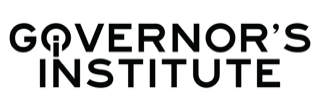NCATOD supports and empowers NC treatment professionals to enhance the quality of patient care in treatment programs by promoting the growth and development of comprehensive opioid treatment services throughout North Carolina.
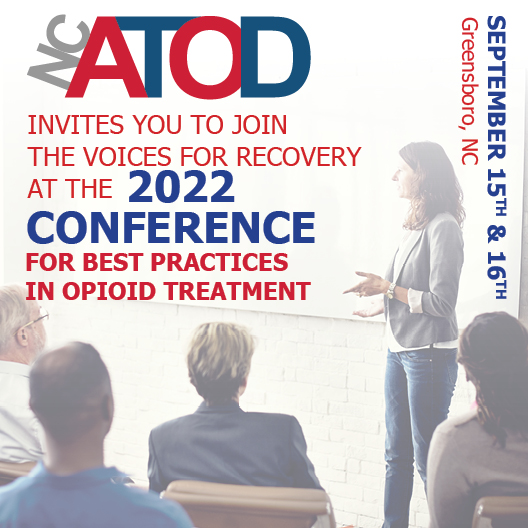
About the Annual NCATOD Conference
The North Carolina Association for the Treatment of Opioid Dependence (NCATOD) is once again proud to present the 2022 Conference for Best Practices in Opioid Treatment: Voices for Recovery.
Sessions have been designed to meet the specialized needs of professionals working with medicated-assisted therapies with specific focus areas for nurses, administrators, clinicians and managers.
This year, we are excited to bring Substance Abuse Professionals together for the following objectives:
- We will identify advocacy roles, issues, and opportunities for opioid treatment providers across the spectrum of opioid treatment.
- We will explore the “Team Concept of Care” in an OTP to address issues of significance with a multidisciplinary approach to care.
- We will provide a unique opportunity to network with opioid treatment colleagues in Addiction Nursing and Counseling from across the state.
NCATOD is the North Carolina affiliate of the American Association for the Treatment of Opioid Dependence (AATOD), which was founded in 1984 to enhance the quality of patient care in treatment programs by promoting the growth and development of comprehensive opioid treatment services throughout the United States.
Who Should Attend?
This conference is for nurses, counselors and support staff working in the field of Medically Assisted Treatment, such as:
- Social Workers
- Marriage and Family Therapists
- Professional Counselors
- Mental Health Counselors
- Nurses
Thursday, September 15, 2022
4:00 – 5:30 p.m. — Registration Opens
5:30 – 6:00 p.m. — Networking Dinner
6:00 – 8:00 p.m. — Announcements, Welcome, and Opening Plenary
Announcements & Welcome
Kenny House, NCATOD President
Novel Addiction Treatment Models that Enhance Adherence, Access, and Quality
Kenneth Stoller, M.D., DLFAPA
Director, Johns Hopkins Broadway Center for Addiction
Friday, September 16, 2022
7:45 – 8:30 a.m. — Registration & Networking Breakfast
8:30 – 10:00 a.m. — Morning Plenary
Announcements & Welcome
Kenny House, NCATOD President
An Unbalanced Look at Benzodiazepines in OTPs
Eric Morse, MD
10:00 – 10:15 a.m. — BREAK
10:15 – 11:45 a.m. — Concurrent Breakout Sessions I
Session A: Improving Patient Safety at OTPS: The Role of Nurses | Jana Burson, MD
Session B: HIV 101 | Liz Ramseur
Session C: Growing Up: How I found Gratitude & Purpose in an OTP | Amy Garner
Session D: The Challenge of Change Moving Forward | Melissa Enoch
Session E: Mutual Aid & Informed Consent | Donald McDonald, MSW
11:45 – 1:15 p.m. — Luncheon Session: State Opioid Treatment Authority Update
1:15 – 2:45 a.m. — Concurrent Breakout Sessions II
Session A: Opiates: Overview from Beginning to Now | Wanda Burger, LPCS, NCC, LCAS, CCS, ICCS, ICAADC, MAC, CCMC, SAP, PhD
Session B: Ethics – Navigating the Minefield of Compassionate Care | James Campbell
Session C: Out of COVID, Back Into the Community Community | Stephanie Dixon, CSS: Louis Leake, CADC, NCACI, CRC
Session D:Fiction and Addiction: Using the power of the Imagination to treat Addiction | Deanna Marzolf, LCAS, LCSW
Session E: Our Words Really Matter: The Connection between Language, Stigma and Overdose | Ed Johnson, LPC, LAC, LACS, MAC, CCS
2:45 – 3:00 p.m. — BREAK
3:00 – 4:30 p.m. — Concurrent Breakout Sessions III
Session A: MI for Nurses | Connie Mele
Session B: The Ethics of “Compliance”: Program-Driven Language in SUD Treatment | Daniel Rhodes
Session C: Recovery Friendly Eco System | Devin Lyall
Session D: Compassion Fatigue and the Behavioral Health Professionals | James Campbell
Session E: Fentanyl: Overview From What it is to How to Treat | Wanda Burger, LPCS, NCC, LCAS, CCS, ICCS, ICAADC, MAC, CCMC, SAP, PhD
OPENING PLENARY
— Kenneth B. Stoller, MD, Director, Johns Hopkins Broadway Center for Addiction
Associate Professor of Psychiatry and Behavioral Sciences
Dr. Stoller’s focus has been novel addiction treatment models that enhance adherence, access, and quality. He held a K23 award from NIDA on cost and adherence as it relates to addiction treatment. He directs the ambulatory addiction treatment program for the Johns Hopkins Hospital, and serves on a number of local, state and national organizations and councils. He is author on over 50 scholarly articles and chapters, gave over 65 invited talks on a regional/national/international level, and was awarded the Nyswander-Dole award in 2016 for his contributions to the field of opioid use disorder. He also serves as Medical Director, Behavioral Health at Johns Hopkins Healthcare, LLC, which administers health insurance benefits for four health plans.
OPENING PLENARY: An Unbalanced Look at Benzodiazepines in OTPs
— Eric Morse, MD
Dr. Eric Morse is an Addiction and Sports Psychiatrist. Dr. Morse is CMO of the Morse Clinics – opioid treatment programs (commonly known as methadone clinics), Morse Clinics of Asheboro, North Raleigh, Dunn, Roanoke Rapids, Zebulon, Johnston Recovery Services in Clayton, Chatham Recovery in Siler City, Vance Recovery in Henderson and soon Morse Clinic of Durham. All of the Morse Clinics proudly accept Medicaid and Medicare.
At Carolina Performance in Raleigh, Dr. Morse has his 275-patient limit for buprenorphine maintenance and has been a PCSS-B mentor since it started in 2003. With 7 buprenorphine waivered physicians, Carolina Performance may be one of the largest OBOT providers in North Carolina. Dr. Morse also has been the Sports Psychiatrist for NC State for the past 16 years and has worked with pro teams and leagues. After completing his residency in psychiatry at the UNC, he did an addiction psychiatry fellowship at the University of Maryland.
Session Description:
We will look at the medical evidence against the allowance for benzodiazepines in the OTP setting, how to approach medical exceptions, and safer alternatives to treat anxiety disorders following the American Psychiatric Association’s Treatment Guidelines published on their website.
CONCURRENT SESSIONS I-A: Improving Patient Safety at Opioid Treatment Programs: The Role of Nurses
Jana Burson, MD
Bio: Dr. Burson received her BS in Zoology and Microbiology at Ohio University in 1983 and completed medical school at Ohio State University in 1987. She then completed her Internal Medicine residency in Charlotte, NC and practiced in primary care for seven years. She eventually became interested in the treatment of opioid us disorders with medications such as methadone and buprenorphine. By 2004, she was working full-time in Addiction Medicine She was certified by the American Society of Addiction Medicine and later became board certified in Addiction Medicine.
Session Description: This presentation will focus on the unusual job description of nurses who dose patients at opioid treatment pr0grams. It will elucidate some of the most common challenges to our nursing staff and how nurses can deal with these challenges. It will review some of the best practices in the areas of avoiding dosing errors, education of patients, and managing overall risk to patents. Case studies will be included to illustrate important points and a Nurse Manager will review best ways to mange medication inventory and avoid errors. After participating in this interactive discussion, participants will be able to describe statistics about how treatment with medications for opioid use disorder (MOUD) reduces mortality and improves quality of life of patients with this disorder; describe three ways that the potential for dosing errors can be reduced; and describe three patient factors that increase risk during methadone induction.
CONCURRENT SESSIONS I-B: HIV 101
Liz Ramseur
Liz Ramseur is the Senior Director of Programming with the ADIS Leadership Foothills-area Alliance (ALFA). Liz has worked in HIV prevention and care for the last 6 years and is credited with establishing many community programs including a harm reduction program and mobile testing unit. Liz holds a Master of Public Health from Lenoir-Rhyne University as well as several certifications including the Certified Health Education Specialist and Recovery Coach Professional designation.
Session Description:
HIV 101 is an introduction to HIV that discusses transmission, control measures, treatment, prevalence and barriers to prevention and care. The relationship between injection drug use and increased risk of HIV/Hepatitis-C transmission, as well as harm reduction strategies, will also be discussed.
(NBCC CREDIT NOT AVAILABLE FOR THIS SESSION)
CONCURRENT SESSIONS I-C: Growing Up: How I found Gratitude & Purpose in an OTP
Amy Garner
Amy Garner is a community advocate and harm reductionist, working in MAT since 1999.
Session Description:
This discussion focuses on my personal experience working in an OTP and my take on developing a heart for service in this field.
CONCURRENT SESSIONS I-D: The Challenge of Change Moving Forward
Melissa Enoch, LCMHC, LCAS, CCS, MAC
Melissa has worked in the Mental Health/Substance Use Disorder field for nearly 30 years in various capacities including Detoxification, Corrections and Treatment. During this time, have had to develop curriculums in order to convey the information in the most effective way for the understanding of the consumers. Consumers have included clients, colleagues and now corporations regarding Therapy principles and practices, Substance Use Disorder Education, and other specific topics including Anger Management, Stress Management and assisting other organizations in the creation of Standard Operating Procedures and Curriculums. She believes that review of my professional background will help solidify your decision to bring me into your educational institution in a teaching capacity as am prepared to help your students achieve their professional goals in the fields of Mental Health and Substance Use Disorders. Also, my Master of Business Administration has helped me manage a facility and have the ability to assist with the translation of this knowledge to the students as well.
CONCURRENT SESSIONS I-E: Mutual Aid & Informed Consent
Donald McDonald, MSW
Donald McDonald is a person thriving in recovery from severe mental and substance use disorders. Previously, Donald served as the National Field Director of Faces & Voices of Recovery, the ED of APNC, and the Director of Advocacy & Education at RCNC. Currently, he is Technical Expert Lead at JBS International, where he provides training and technical assistance to HRSA-funded rural consortia across the country as they build capacity in response to the overdose crisis. Donald is a veteran, husband, father, grandfather, social worker, and Licensed Clinical Addictions Specialist. He holds a Master of Social Work from UNC Chapel Hill.
Session Description: We often recommend that our participants engage mutual aid as a psychosocial support to the pharmacotherapeutic treatment of their opioid use disorder (OUD). We may even require it. Mutual aid meetings focus on socially-supportive communication and the exchange of skills through shared experience. Meetings based on the 12-steps such as Alcoholics Anonymous (AA) and Narcotics Anonymous (NA) are some of the most widely available. Do we engage in balanced informed consent around all therapeutic options we recommend or require, (e.g., medications, counseling methods, mutual aid), disclosing potential benefits and risks? Do we know the benefits and risks of mutual aid? In this presentation, we will explore and overcome barriers to the appropriate utilization of mutual aid as a tool to help clients achieve their goals.
CONCURRENT SESSIONS II-B: Navigating the Minefield of Compassionate Care
James Campbell, LPC, LAC, MAC
Bio: James Campbell has worked professionally in the human services field for over twenty-five years in a
wide range of clinical settings and currently serves as the Training and Technical Assistance Manager
for Southeast Addiction Technology Transfer Center at Morehouse School of Medicine. His passion is
helping individuals, families, and communities heal and build on the strengths they possess. He is a
member of both NAADAC and ACA, is a past president of APSC/SCAADAC, and is a nationally
author and speaker.
Session Description: This session will introduce addiction professionals to ethics as it relates to their relationships with clients, families, employers, and the profession. The importance of confidentiality and the duties and responsibilities of people working within the field will be addressed. Duty to warn, self-disclosure, dual relationship, and differing professional roles will specifically be addressed during the session. This is a foundational training for those newer to the field as well as an excellent review for those who may need a refresher and/or update.
CONCURRENT SESSIONS II-C: Out of COVID, Back Into the Community Community
Stephanie Dixon, CSS
Louis Leake, CADC, NCACI, CRC
Stephanie Dixon has worked in MAT for 9 years, first as a counselor, and now as a Clinical Supervisor. She is also an educator, teaching at FTCC and UNCP to share her vast knowledge with those who want to learn more about substance use disorders.
Louis Leake is currently the Clinic Director of Comprehensive Treatment Center of Fayetteville. One of the Largest OTP in NC. Louis has been in the specialty of MAT for 13 years. He is a member of four Community Coalitions as well as a myriad of other community organization. He is an adjunct instructor at Fayetteville Technical Community College for The Fundamental Skills of Substance Abuse Counseling. He utilizes all of these connections to advocate for all patients in MAT and to educate civic groups on the efficacy of treatment.
Session Description:
All Zoomed out? Time to get back into the community and reconnect with stakeholders and agencies that have the potential to assist our patients in their recovery. Discussion will consist of how to develop an engagement strategy and to reestablish and make new connections. This will be interactive and informative.
CONCURRENT SESSIONS II-D: Fiction and Addiction: Using the power of the Imagination to treat Addiction
Deanna Marzolf, LCAS, LCSW
Deanna Marzolf is a LCAS and LCSW working as a substance abuse counselor at Carolina Treatment Center Fayetteville NC. Ms. Marzolf has worked in the addiction field for 5 years.
Session Description:
Fiction describes worlds full of imaginary events people and places. Using fiction, clients will have the opportunity to discuss their addiction issues in a way that will spark their imagination and may help break down barriers to building rapport.
CONCURRENT SESSIONS II-E: Our Words Really Matter: The Connection between Language, Stigma and Overdose
Ed Johnson, LPC, LAC, LACS, MAC, CCS
Since March 2010 Ed Johnson has worked for the Southeast Addiction Technology Transfer Center (ATTC) located at Morehouse School of Medicine in Atlanta. He is currently the Associate Director, Training and Technical Assistance. He has worked in the field of Addiction, Treatment and Recovery for over thirty years, twenty of which were with individuals with opioid use disorders in medication assisted recovery programs. He has provided numerous trainings in the Southeast on Addiction Treatment, Prevention and Recovery related topics. He is currently credentialed / licensed as a Licensed Professional Counselor (LPC), Licensed Addiction Counselor (LAC), Licensed Addiction Counselor Supervisor (LACS), as a Master Addiction Counselor (MAC), and as a Certified Clinical Supervisor (CCS).
Session Description:
When compared with other chronic medical conditions, the general public and healthcare providers inordinately stigmatize substance use disorders (SUD) and the people who have them. This stigmatization is perpetuated and exacerbated by the language and terms use referring to SUD. It is this stigma that keeps individuals from entering and remaining in treatment. With respect to opioid use disorder (OUD) the stigma is killing people. This presentation will explore commonly used terms and commonly held concepts related to substance use disorders and their treatment while exploring alternate terms and concepts that are more congruent with the constructs of addiction as a chronic medical condition not a moral weakness.
CONCURRENT SESSIONS III-A: Motivational Interviewing: Working Effectively and Compassionately with your Clients
Connie Mele, MSN, RN, CARN-AP, PMHCNS-BC, LCAS
Connie Mele began her career as a nurse in a methadone clinic. It is there she fell in love with the specialty of Addictions Nursing. She has spent her career focused on making treatment available to all people who want it. She has received numerous awards and recognitions over her career. The most satisfying one is from the client that let’s her know they are still clean and sober.
Session Description:
Motivational Interviewing was developed as an alternative to the highly confrontational counseling techniques being used in the 70’s and 80’s. It is a therapeutic approach that encompasses both a spirit and style of counseling. There is a relational aspect that stems from empathy and the interpersonal spirit which makes it a natural fit for nurses. As the most trusted profession, nurses care, concern and compassion are essential components to the care they give. This approach offers the client hope and focuses on their strengths. MI is especially useful when the client is in the early phase of treatment, utilizing the process of engagement.
CONCURRENT SESSIONS III-B: The Ethics of “Compliance”: Program-Driven Language in SUD Treatment
Daniel Rhodes
Daniel worked directly in OTPs from 2015-Feb 2022. He worked as a counselor, a Clinical Supervisor, and a Clinic Director. He is currently working in a Utilization Review capacity, helping providers get credit for the great care they are providing. His primary interests focus on providing patient-centered care in order to create and maintain the relationship necessary to help the client build a firm foundation in recovery. Whatever gets in the way of that relationship, whether outdated thinking and language or stigma—internal to the clients or in the larger community—is something he is interested in addressing.
Session Description:
We talk about patient-centered care in one breath, and then talk about whether a patient is “compliant,” in the next. In this presentation, we will look at some of the program-driven and evaluative language that is still deeply entrenched in OTPs. We will explore some of the ethical issues inherent in continuing to treat people using old modes of thinking. Throughout, there will be a focus on self-reflection and attention to the experience in the counselor’s seat.
CONCURRENT SESSIONS III-C: Recovery Eco-System…ANY POSITIVE CHANGE
Devin Lyall, ADC- Intern, Certified Recovery Coach
Devin Lyall is the founder and Executive Director of Wilkes Recovery Revolution, Inc., an accredited recovery community organization in Wilkes County, North Carolina with a mission to restore hope, repair lives, and create a community where recovery is possible. Devin is an individual in recovery who believes the power of lived experiences. Devin is the recipient of the Great State Hero Award for Crisis Assistance and the 2021 Chairman’s Award and her story and the work of WRR have been featured in The Economist, the Winston-Salem Journal, NC Health News, Spectrum News, and more.
Session Description:
Educating participants on how to collaborate and create recovery eco-systems that bridge barriers to support all pathways to recovery. In this presentation we will share about the origin of our Accredited Recovery Community Organization and how we created a community that was recovery ready through various programming. Participants will learn that recovery is nonlinear and that all pathways should be supported and non-stigmatized. We will discuss creating a culture where harm reduction services are availed in the heart of our Recovery Community Center driven by people with lived experiences and how to break down bias so that all people are healthy and able to thrive.
CONCURRENT SESSIONS III-D: Compassion Fatigue and the Behavioral Health Professionals
James Campbell, LPC, LAC, MAC
James Campbell has worked professionally in the human services field for over twenty-five years in a wide range of clinical settings and currently serves as the Training and Technical Assistance Manager for Southeast Addiction Technology Transfer Center at Morehouse School of Medicine. His passion is helping individuals, families, and communities heal and build on the strengths they possess. He is a
member of both NAADAC and ACA, is a past president of APSC/SCAADAC, and is a nationally recognized author and speaker.
Session Description:
By all accounts, times of transition elevate stress levels and require a heightened sense of focus. During this prolonged season of nearly constant change, it is crucial that those of us in the helping professions remain aware of our own stress levels, are attentive to the needs of those we serve, remain mindful of those we serve alongside, and establish effective habits for maintaining prolonged health. This session is an opportunity to evaluate where participants are in terms of their own changes and self-care and to develop a practical plan for increasing the health and vitality of ourselves, our programs, and those we have the privilege of serving.
CONCURRENT SESSIONS III-E: Session E: Fentanyl: Overview From What it is to How to Treat
Wanda Burger, LPCS, NCC, LCAS, CCS, ICCS, ICAADC, MAC, CCMC, SAP, PhD
Wanda started her career as a psychiatric nurse. Following a serious car accident and recovery from a TBI, she returned to college and achieved a master’s in psychology and counseling. Katie and Calvin, registered therapy dogs, assist Wanda in sessions for trauma, dual diagnosis, and substances . She has supervised clinicians for licenses since 2005. After leading trainings as a clinical director, she became an ACEP (Approved Continuing Education Provider) for NBCC and NAADAC. In giving back to the field, free CEUs are offered to her supervisees.
Session Description:
This brief workshop is designed to assist mental health clinicians and direct care staff with recognizing, diagnosing, and
supporting individuals with opiate misuse. An overview of the new DSM 5 diagnostic criteria is offered, as well as a brief
update on prevalence, populations affected, and evidence-based research. Opiate misuse is rising and only through
prevention, recognition, collaboration, and thoughtful intervention may barriers be eliminated to facilitate
compassionate care and healing.
The North Carolina Association for the Treatment of Opioid Dependence once again presents the 2022 Conference for Best Practices in Opioid Treatment: Voices for Recovery, September 15-16th in Greensboro, NC. Three tracks have been customized to meet specialized needs in the areas of Nursing, Administration, Clinical and Leadership.
Join us by registering now. Please register early! Conference participation will be limited.
Online Event Registration Powered by Eventbrite.
*Early-Bird registration ends July 15th at 11:55pm.
Refund Policy
A full refund (less a $20.00 service fee) can be made for conference registration cancellations completed by 5 p.m. August 30, 2022. NO REFUNDS will be made thereafter, but a substitute participant may attend.
North Carolina Addiction Specialist Professional Practice Board
NCATOD has applied to NC Addiction Specialist Professional Practice Board (NCASPPB) for up to 9 hours of credit. Individual credit will be awarded for each session attended, and NCASPPB credit is included with conference registration
All conference related questions need to be made to: Registration@NCATOD.org.
Embassy Suites
204 Centreport Drive
Greensboro, NC 27409
The Embassy Suites in Greensboro, NC offers such great meeting rooms as well as excellent accommodations for those who need housing. The number of available rooms will meet our conference needs quite well and the negotiated price for participant housing is outstanding.
The Embassy Suites is located in the center of the Triad, just 6 miles from the Piedmont Triad International Airport at the intersection of Interstate 40 and Highway 68. They are the premier center for hospitality in the area, with a full range of services to meet every traveler’s needs. The 219, all-suite property has an elegant 7-story atrium where the fresh scent of lush greenery fills the senses. Water cascades from a luxurious fountain and sunlight radiates through the skylights overhead.
Each suite is beautifully decorated with a private bedroom and spacious living room. All of the suites have a refrigerator, microwave oven, individual cup coffee maker, two flat screen televisions, two telephones, high speed Internet and a very functional dining/work table with ergonomic chair. Choose a suite with 2 double beds or 1 king bed; in addition each suite is equipped with a queen size sleeper sofa for extra guests.
Since the NCATOD Conference registration fee does NOT include housing/lodging, special daily rates of $112.00 + tax (Two Double Beds or One King Bed, Non-Smoking)</mark>, have been negotiated with the Embassy Suites. This room rate includes breakfast on Friday morning, plus a complimentary reception Thursday and Friday evenings.
All lodging/housing arrangements must be made directly with the Embassy Suites no later than <strong>September 1, 2022
BOOK YOUR ROOM ONLINE NOW!
Or call 336-668-4535 to make your hotel reservation.
